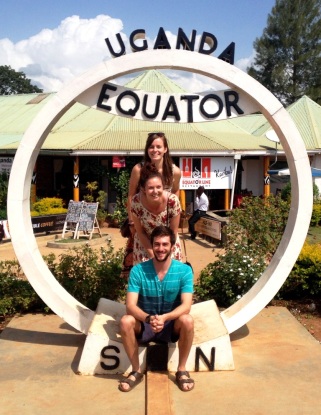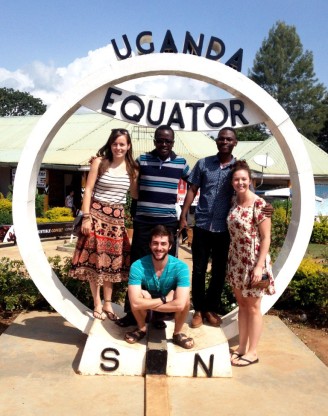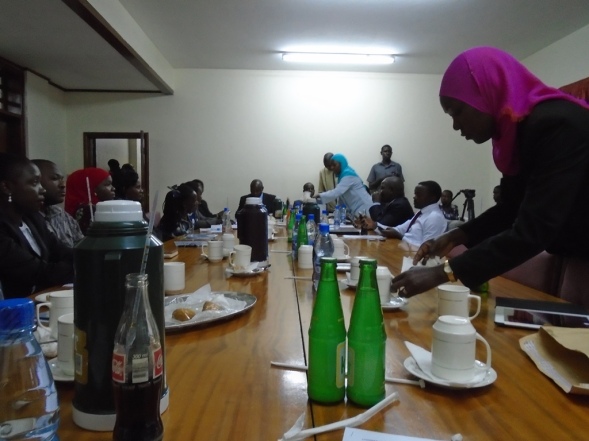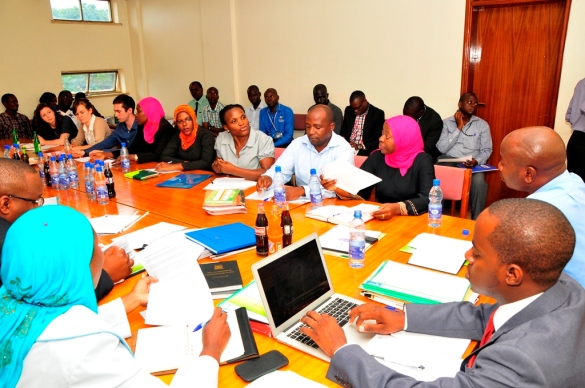August 17th 2015
Today is our last Monday at work. Looking back, I realize I’ve written very little about the actual work we’ve been doing here over the last few months. So it seems appropriate to write a post about the most recent project we were working on. Namely, a shadow report that Jeremy and I wrote on behalf of a coalition of over twenty non-governmental organizations (NGOs). We submitted it on Friday, and the report will soon be distributed to these and other NGOs, including the Uganda Human Rights Commission. Most importantly, it will (hopefully) be incorporated into Uganda’s National Action Plan (NAP), as well as being sent to the United Nations Headquarters in Geneva to be used in the second Universal Periodic Review process. Pretty exciting stuff. Especially given that I wasn’t expecting to be writing shadow reports until years down the road. So no pressure or anything.
But what is a shadow report you ask? And what is the Universal Periodic Review? Good questions. Answering these will be the focus of this post, which will require a bit of an explanation of the United Nations system. Hence the title ‘The United Nations for Dummies’. I’ve never actually read one of the For Dummies books, so they may even have one about the UN, but here’s my version anyways (disclaimer – I’m writing this without access to internet, so the details could be a bit fuzzy):
As you probably know, the UN was established in 1945. It was meant to be a sort of new and improved League of Nations. It currently has 193 member states, and as such it is one of the first examples of global governance. What is it governing? Essentially, it is monitoring human rights and promoting peace and security. Its main purpose is to set, monitor and enforce international human rights standards. To do so, the UN came up with the Universal Declaration of Human Rights, which outlines the fundamental rights that all people have simply by nature of being human. From there, the UN created nine covenants that go into more detail on these rights. These include the International Covenant on Economic, Social and Cultural Rights, the Convention on the Elimination of All Forms of Discrimination Against Women, the Convention on the Prevention and Punishment of the Crime of Genocide, etc. You get the idea.
Once these covenants were created, member states have the option to ratify them. By ratifying a covenant the state in question basically says that they commit to ensuring that every citizen of that state has these rights.* And they commit to dealing with violations of these rights accordingly. So, for example, a country that ratified the Convention of the Rights of the Child would be completely free of child abuse, child labour, etc. In an ideal world.
Unfortunately, this is not an ideal world. Many states have ratified covenants but still have widespread human rights violations. Uganda for example has ratified the International Covenant on Economic, Social and Cultural Rights, yet many of these rights aren’t even included in their Constitution.
So, what makes a state’s ratification more than just words on paper? What mechanisms are in place to enforce the rights laid out in the nine covenants? When a state ratifies a covenant, they also agree to complete a system of reporting. Essentially, each signatory state is supposed to submit a report every four to five years on the situation of each particular human right. The report should outline what mechanisms the state has put in place to enforce the human right, and what challenges they still face. So, for example, a state that ratified the Convention on the Elimination of All Forms of Racial Discrimination would probably talk about the different ethnic groups within the state, studies that have been done examining what types of discrimination they face, and maybe initiatives like equal opportunity employment. Each reporting cycle, the UN reads these reports and from them evaluates the state’s progress. If there are problems, they may assign a Special Rapporteur to go investigate the human rights issues in the given country. Alternatively, the UN may utilize the International Court of Justice or the International Criminal Court. Sounds great right?
Wrong. Believe it or not, this system isn’t actually very effective. In fact, the biggest critique of the UN system is that it lacks teeth. Countries regularly fail to submit their reports, and they don’t get penalized for it. Further, when states do submit reports they often overstate the good and leave out the bad. States want to look better than they are, so they don’t own up to everything. Moreover, Special rapporteurs are only allowed to investigate a country with the country’s permission. So it’s all well and good to agree to these lofty rights, but if the UN is unable to enforce them then it loses all its power. And if states can’t be held accountable, then the conventions become laughable.
One way to combat the inaccuracy of state reports is through shadow reports. Like state reports, shadow reports outline the situation of a particular human right in the state in question. The difference is that shadow reports are written by NGOs and concerned citizens. Because they are not from the government they don’t have a vested interest in making the state look good. As such, shadow reports often offer a much more accurate depiction of where a country is at. For example, I once read China’s state report to the Committee on the Elimination of All Forms of Discrimination Against Women. I was writing a paper on forced sterilizations of women in Tibet by the Chinese military, which is a wide-spread issue. But in the state report there was no mention of this attempted reproductive genocide, or even sterilizations more generally. The only thing mentioned was the One Child Policy, and it was framed in terms of its effectiveness with population control. On the other hand, the shadow reports I read gave detailed explanations of the illegal sterilization, and contained quotes from Tibetan women who had been forcibly sterilized. A much more holistic and reliable source if you ask me.
Unfortunately, even with shadow reports it is still hard to hold states accountable. Recognizing this, the UN came up with an additional system. In 2006 they implemented the first Universal Periodic Review (UPR). The purpose of the UPR is to do a holistic assessment of human rights in each member state. To do so, each state submits a report, and NGOs and citizens are welcome to submit shadow reports. It is a peer review process, so for each session three states are assigned to review the human rights situation of other states (based on the aforementioned reports). Based on these they give recommendations. Each state should consider and adopt these recommendations, and their progress will be reviewed in the next UPR.
The first UPR process was recently completed, and the UN is now beginning the second. Uganda will be reviewed for the second time in the Spring of 2016, during the UPR’s 26th Session. Further, Uganda is currently in the process of developing a National Action Plan. This was one of the recommendations given to Uganda during the last UPR. The NAP will give a holistic overview of the steps needed to improve human rights in Uganda.
This is where we come in. Food Rights Alliance (FRA) – along with two other organizations and their partners – was recently asked to submit a shadow report for the UPR and for the development of the NAP. As FRA and its partners are particularly concerned with Economic, Social and Cultural Rights (ESCRs), these are the focus of the report. More specifically, the report focuses on the right to food, women’s rights, the rights of children’s and youth, and the right to information.
To gather information on the above topics, FRA and the other organizations held a civil society consultative meeting on Friday August 7th. In the meeting attendees voiced their opinions, while consultants for the NAP process listened attentively (at least I hope they did). Meanwhile, Jeremy and I frantically transcribed everything that was said. Later, we would use these comments to craft the shadow report.
Unfortunately I was sick in bed for most of last week, so I was working on the shadow report between naps (and no, I don’t mean the National Action Plan). Luckily, Jeremy was super understanding and more than equipped to plow ahead without me (thanks Jeremy, I owe you one!). As a result, we were able to submit the report on Friday evening, and are hoping to see it distributed in the next few days. Fingers crossed that we didn’t completely screw it up!
So there you go: a description of some of our work here in Uganda, and a detailed explanation of the UN system to boot. Wasn’t that fun?
Sorry if I put you to sleep. I promise the next post will be more interesting.
___________________________________
*States can also have reservations to a covenant. Basically if they agree with everything in a covenant EXCEPT one article, they can choose to ratify the covenant, excluding that article. For instance, several Middle Eastern states have reservations to the Convention of the Elimination of Discrimination against Women, because certain articles go against their cultural and religious beliefs. But states are only allowed a certain number of reservations per covenant before it jeopardizes their ratification.











